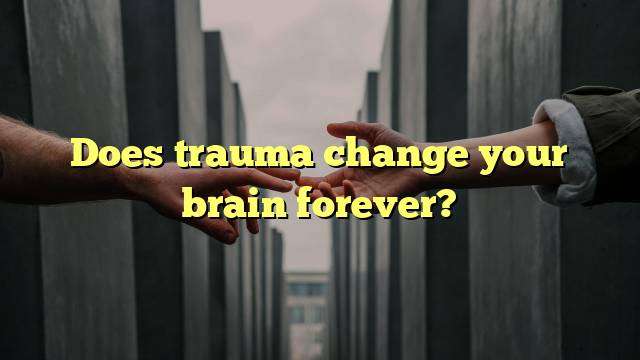Does Trauma Change Your Brain Forever?
Trauma is an experience that can have lasting and devastating effects on a person’s mental health. Physical and emotional trauma can lead to Post-Traumatic Stress Disorder (PTSD) which, according to the National Institute of Mental Health, affects 8% of Americans. PTSD can be a lifelong problem for many and can result in severe brain damage. But is it possible to reverse the damage caused by trauma and restore the brain to its pre-traumatic state?
What Is Trauma?
Trauma is a response to an extremely distressing event that can cause physical, emotional, and psychological harm. Traumatic events can range from natural disasters to physical or sexual abuse, to the loss of a loved one. Traumatic events can cause a person to feel overwhelmed, frightened, and helpless.
The Effects of Trauma on the Brain
When a person experiences a traumatic event, their brain reacts by activating the body’s fight-or-flight response. This response triggers a flood of hormones, such as adrenaline and cortisol, which can cause physical changes in the body. These hormones can also affect the brain, resulting in changes in behavior and emotions.
The most common effects of trauma on the brain are:
- Mental Health Issues: Trauma can cause a range of mental health issues, such as depression, anxiety, and PTSD.
- Cognitive Impairment: Trauma can affect the person’s ability to think clearly, concentrate, and remember things. It can also lead to difficulty making decisions and solving problems.
- Neurological Damage: Trauma can cause lasting damage to the brain, including the hippocampus, which is responsible for memory and learning, and the amygdala, which regulates emotional responses.
Can Trauma Be Reversed?
The good news is that there is hope for people suffering from the effects of trauma. While the damage caused by trauma can be long-lasting, it is possible to reverse some of the effects with the right treatment.
Therapy
Therapy can help a person process and cope with the trauma they have experienced. Cognitive Behavioral Therapy (CBT) is a type of therapy that helps people identify negative thoughts and behaviors, and replace them with positive ones. Therapists can also help people develop healthy coping strategies for dealing with their trauma.
Medication
Medication can also play a role in treating trauma. Antidepressants, anti-anxiety medications, and mood stabilizers can help alleviate some of the symptoms of trauma. It is important to talk to a doctor or therapist before starting any medication, as medications can have side effects and may interact with other medications.
The Power of Time
In addition to therapy and medication, time can also be a powerful tool in treating trauma. With time, people can learn to cope with their trauma and move forward in their lives. It can take time to heal, but with the right treatment and support, it is possible to recover and lead a healthy, happy life.
Conclusion
Trauma can have long-lasting effects on the brain, but these effects can be reversed with the right treatment. Therapy, medication, and time can all help a person recover from their trauma and restore their brain to its pre-traumatic state. By seeking help and treatment, it is possible to overcome the effects of trauma and move forward in life.



